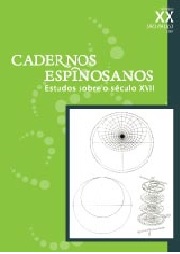Merleau-Ponty and the “Great rationalism”: what does it mean - to read a classic?
DOI:
https://doi.org/10.11606/issn.2447-9012.espinosa.2009.89357Keywords:
History of philosophy, Reading, Sedimentation, Ideality.Abstract
This essay intends to show how the so-called “theory of reading” presented by MerleauPonty, which is based upon the meditation of other philosophers’ “unthought”, receives its proper foundation only in the context of his ontology or, more precisely, in the realm of his project’s consequences concerning the understanding of ideality. It is only in those terms that “history of philosophy” makes sense in Mearleau-Ponty´s work, after having assumed previous philosophical decisions such as the one that determines that in order to inscribe meaning in the domain of the sensitive it is necessary to underline the passive dimensions of experience that are responsible for the thematic acts of consciousness.Downloads
Downloads
Published
2009-06-15
Issue
Section
Artigos
License
Autores que publicam nesta revista concordam com os seguintes termos:
- Autores mantém os direitos autorais e concedem à revista o direito de primeira publicação, com o trabalho simultaneamente licenciado sob a Licença Creative Commons Attribution que permite o compartilhamento do trabalho com reconhecimento da autoria e publicação inicial nesta revista.
- Autores têm autorização para assumir contratos adicionais separadamente, para distribuição não-exclusiva da versão do trabalho publicada nesta revista (ex.: publicar em repositório institucional ou como capítulo de livro), com reconhecimento de autoria e publicação inicial nesta revista.
Authors who publish in this journal agree to the following terms:
a. Authors retain copyright and grant the journal the right of first publication with the work simultaneously licensed under the Creative Commons Attribution License that allows to share the work with an acknowledgment of its authorship and initial publication in this journal.
b. Authors are authorized to take on additional contracts separately, to non-exclusive distribution of the article published in this journal (ex.: to publish in institutional repository or as part of a book), with an acknowledgment of its initial publication in this journal.
How to Cite
Neves, J. L. B. (2009). Merleau-Ponty and the “Great rationalism”: what does it mean - to read a classic?. Cadernos Espinosanos, 20, 149-163. https://doi.org/10.11606/issn.2447-9012.espinosa.2009.89357


